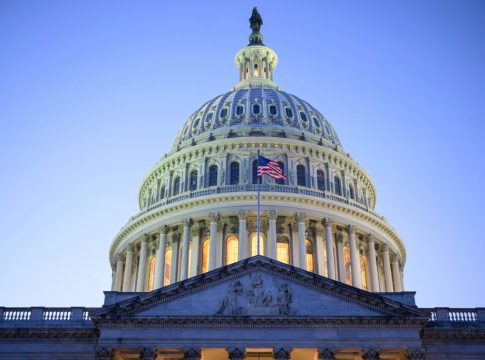Business Lobby Pushes for Nationwide AI Regulation Freeze
In a significant move, hundreds of business organizations are rallying behind a proposal in the Senate that aims to impose a decade-long ban on state-level regulations concerning artificial intelligence (AI). This initiative has emerged as the Senate debates it as part of a broader reconciliation package.
The Call for Uniformity
Over 200 local chambers of commerce, spearheaded by the U.S. Chamber of Commerce, have expressed firm support for this freeze on regulation. The groups argue that halting localized regulations is essential to facilitate a cohesive and uniform approach to AI development across the country.
The urgency stems from the surge of over 1,000 state and local bills aiming to regulate AI that have surfaced this year alone. Business leaders fear that a patchwork of regulations could stifle innovation, increase costs, and complicate compliance for companies deploying AI technologies.
Implications for Innovation
The argument for a regulatory pause is rooted in the economic potential of AI. Proponents believe that a consistent national framework would foster innovation by allowing businesses to focus on development rather than navigating a labyrinth of state laws.
With AI rapidly evolving, the concern is that inconsistent regulations might hinder advancements and force companies to allocate resources to legal compliance instead of research and development.
The Broader Context
Historically, the tech industry has thrived in environments with minimal regulatory restrictions. For example, California’s early approach to Silicon Valley allowed companies to experiment and grow without burdensome regulations. In light of this, many business leaders draw parallels with those early days, asserting that similar conditions must exist for AI technologies to reach their full potential.
Potential Risks
However, critics argue that an absolute freeze could lead to a lack of oversight, raising ethical concerns regarding privacy, security, and employment. As AI becomes increasingly integrated into everyday life, from autonomous vehicles to sophisticated customer service bots, the absence of state regulations might leave crucial societal issues unaddressed.
Balancing innovation with accountability will be essential. Advocates of regulation stress that without adequate frameworks, the risks associated with AI—such as algorithmic bias or data misuse—could escalate.
Looking Ahead
As the Senate contemplates this proposed freeze, the debate reflects broader tensions between ensuring a fertile ground for technological advancement and safeguarding public interests. The outcome will not only define the regulatory landscape for AI but could also influence how businesses operate and innovate in the coming years.
In essence, as the conversation around AI regulation continues, a pivotal moment is on the horizon—one that will likely shape the future of technology and its integration into the fabric of society.

Writes about personal finance, side hustles, gadgets, and tech innovation.
Bio: Priya specializes in making complex financial and tech topics easy to digest, with experience in fintech and consumer reviews.

